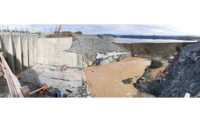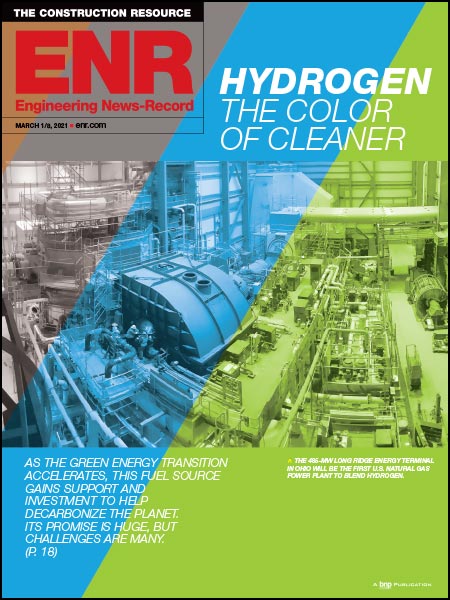In the late-1990s, Smurfit-Stone Container Corp. in Frenchtown, Mont., reaped the benefits of electricity deregulation in Montana, paying as little as $25 per Mwh. By 2000, prices had spiked to $150, forcing the plant to shut down some operations.
Still, during the West�s energy crisis, plant manager Bob Boschee remained optimistic that deregulation was the way to go. "If we get totally deregulated it would be a good thing."
Today, Smurfit-Stone officials, mired in a lawsuit with Enron Corp., won�t even publicly comment on the subject of deregulation.
Except for those first few years of benefits for large industries, everything went wrong with deregulation in Montana that could possibly go wrong, says state senator Ken Toole. Toole wasn�t in office in 1997 when the legislature stripped the state of power to dictate the price of electricity, handing it over to the free market. At the time, Montanans enjoyed some of the cheapest power in the country.
Shortly after deregulation, Montana Power Co. sold all its dams and generation plants to Pennsylvania Power and Light, and its transmission lines to Northwestern Energy.
The law immediately allowed businesses to begin shopping around for the best price, forcing homeowners to do the same in 2002. Since then, most small and institutional customers have retained default service and have seen steady increases in their bills, with no cap in sight. Since full deregulation, purchasers statewide have see an $82-million annual increase, according to the Public Service Commission.
"What we created was an unregulated monopoly," Toole says. "PP&L is now a merchant speculative power broker who could care less about Montanans."
Bob Rowe, the state�s Public Service Commissioner, thinks legislators goofed when they didn�t do their homework on transmission, planning and operations.
"The policy got way in front of the market," he says. "The legislators assumed the world would develop in a certain way. A lot of the push nationally was being driven by economics and deregulation advocates�without consultation from the engineers. The engineers were scared�and they still are."
To complicate matters, Northwestern teeters at the threshold of bankruptcy because of unprofitable business ventures by its affiliates. In January, the PSC issued a tough order, spelling out "what we expect NorthWestern to do to get its house in order," Rowe says�in order to ensure the company doesn�t drain off assets trying to bolster its struggling affiliates.
''Our financial difficulties are very real and very immediate, and magnified by the default supply obligation. The problem is compounded by the regulatory body in the Public Service Commission which appears to pay insufficient attention to the needs for the utility to recover its supply costs,'' says Dennis Lopach, senior vice president of NorthWestern Energy, a division of NorthWestern Corp., headquartered in Sioux Falls, S.D.
''Northwestern got on the scene after deregulation and before the default supply rules were worked out. Deregulation doesn't work where there is not a competitive supply with sufficient transmission lines to ensure a competitive market,'' Lopach adds.
Critics are also worried that the financial problems might affect Northwestern's ability to close long-term deals with sellers�increasing consumer prices even more.
To avoid future problems, "The PSC needs authority in law to review and act on sales of large blocks of utility property," Rowe says. "Almost every state in the country has this authority in law. Montana doesn't."
|
For the moment, the industry is pointedly staying out of the deregulation debate. David Hoffmann, a spokesman for PP&L-Montana sidesteps any questions concerning the issue, simply saying, "Deregulation was a policy decision made by the state of Montana."
However, the company hasn�t been shy about defending its investments. During the 2001 elections, PP&L joined with Avista Corp., another owner of Montana power generating dams, to fund a $3-million campaign to thwart a citizens initiative that would have directed the state to study the feasibility of buying back the dams.
Toole hopes to revive the "Buy Back the Dams" initiative. "When we first raised the issue we had a 60% approval rate. Then they spent $3 million on their campaign compared to our $60,000. Our approval rating went down to less than 40%. There�s no starker example than that of what money can do in politics."
The Republican-controlled state legislature has been wary about reregulating the industry. Last winter, it did pass a bill that put the "default supply to small customers on a more stable footing," Rowe says. The bill gave Northwestern long-term direction on default supply and backed up the PSC default supply guidelines.
Rowe is convinced that regulation and competition are not necessarily mutually-exclusive. "The challenge is to develop rules that are appropriate for particular markets, and for how those markets are developing," he says.




Post a comment to this article
Report Abusive Comment